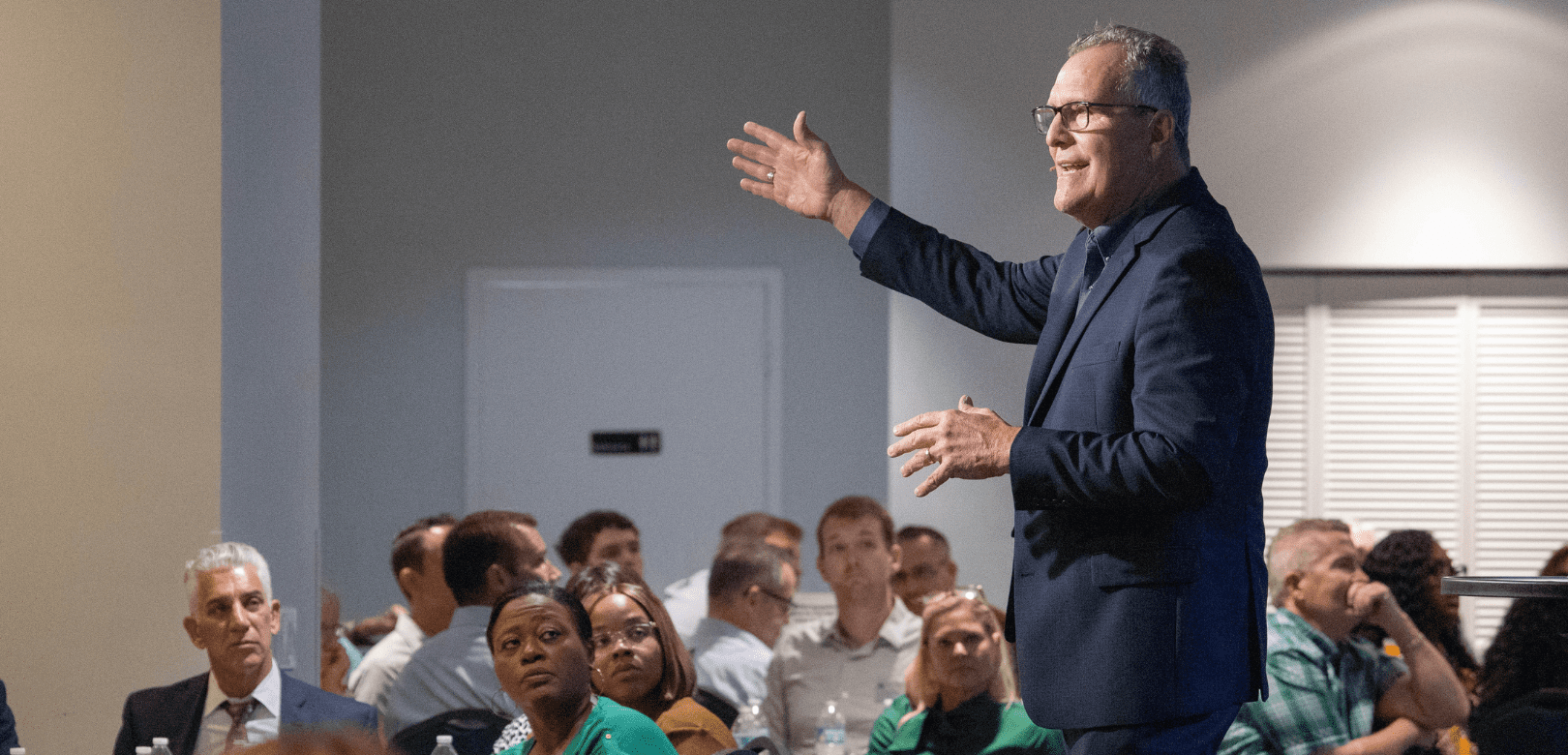
By David Ashcraft and Amber Van Schooneveld
In my early years of ministry, I (David) took a bus full of high school and college students skiing in Colorado. Being from Texas, some of them knew how to ski and some had never been before. A few of the experienced skiers convinced some of the kids who had never been that they didn’t need lessons—just follow them.
They led these inexperienced skiers to the top of the mountain, wanting to show the others just how skilled they were. But if you’ve ever skied, you suspect what happened next. By the end of the day, there were 20 kids in tears, stranded and sliding down the mountain on their bottoms. The “leaders” had been primarily concerned with proving themselves—no matter what it might cost those around them.
We’ve all been around leaders like that, who seem primarily focused on advancing themselves. These powerful personalities can bulldoze those around them, and we can come to think that this style of self-promoting leadership is inevitable at the top. But it’s not.
The most powerful leaders—particularly those at the top—model humility in leadership.
Level five leadership—humility and grit
In his seminal book, “Good to Great,” Jim Collins lays out his team’s research into the most successful companies. What they found in the leaders of the companies that reached greatness—and stayed there—was counterintuitive.
“The most powerfully transformative executives possess a paradoxical mixture of personal humility and professional will,” Collins reported to the Harvard Business Review.
Most of us realize the colossal grit necessary as an executive. But we often forgive it as inevitable when this strong will is paired with a towering ego. That’s just what it takes, right?
Collins found that while ego can catapult a company to success, it can’t keep it there: “In more than two-thirds of the comparison companies, we noted the presence of a gargantuan ego that contributed to the demise or continued mediocrity of the company.”
By contrast, the leaders who had both tenacity and a modest disposition, what he calls “level five leadership,” were unstoppable.
Why is humility in leadership pivotal?
Humility is so pivotal in leadership because it determines the focus, and therefore direction, of a leader. Humility is not a low view of oneself. It’s not self-deprecating. As Rick Warren states in “The Purpose Driven Life”: “True humility is not thinking less of yourself; it is thinking of yourself less.”
Or as C.S. Lewis eloquently put it, “a really humble man… will not be thinking about himself at all.”
When we are truly humble—when are not obsessed with ourselves and our own interests—we are able to obsess over what is truly important. We can have a mono-focus on the goal and not waste time on our own press or get sidetracked by self-serving decisions. And, unconcerned with promoting ourselves, we can focus on ensuring that the people around us have everything they need to work toward the goal.
Former NFL coach Tony Dungy, credited with turning around both the Tampa Bay Buccaneers and the Indianapolis Colts, credited his others-focus as the reason for his success. When asked what his leadership superpower was on our podcast in 2019, he said it was the “ability to get people to know that I really believe in them, that I’m for them and I have their best interest at heart. I think I had a great ability to get people to listen and to follow because they wanted to follow.”
 Can leaders learn humility?
Can leaders learn humility?
If you are reading this article, you probably already possess a desire to grow in humility. But is it even possible to become like the extraordinary leaders Collins profiles in “Good to Great”? Or are they just born that way? Collins’ depressing hypothesis was that “there are two categories of people: those who don’t have the Level 5 seed within them and those who do.”
But we believe that it’s possible to be radically transformed toward humility because we’ve seen it.
Consider the story of Dr. Steve Gerndt. Dr. Gerndt was a cardiothoracic surgeon who, early in his career, believed he was the most important person in the room. After all, he was literally a heart surgeon. He admits that it impacted the way he treated everyone else in the operating room and decreased staff performance.
But over time (and influenced by the leadership principles he heard at the Global Leadership Summit), Dr. Gerndt realized that he needed to grow in humility and civility at work. As he worked on himself, he also began to realize how it could impact his hospital as a whole, and he started Civilitas, a program focused on building psychological safety that is now used in hospitals across the country. Dr. Gerndt went from a leader focused on himself to a leader focused on the well-being of others.
Read Dr. Gerndt’s full story here.
There are two approaches you can take to grow in humility—behavior modification or life reorientation. As you might expect, the latter is far more important than the former. First, you can take practical steps to grow in humility as a leader:
- Practice self-reflection. We love how Ryan Leak put it at the 2023 Global Leadership Summit: “What’s it like to be on the other side of your leadership?”
- Create an environment of candor. Have you created an environment in which people can give you honest feedback? The best leaders invite accountability and candor so that they can learn and grow.
- Listen and ask questions. Leaders need accurate and full information to make good decisions. This is only possible when their voice isn’t the primary or the loudest in the room. Focus on asking insightful questions and actively listen to the great people you’ve gathered around you.
These tips are important, but they are primarily focused on behavior modification. These actions are the symptoms of humility, but not humility itself. We believe that to grow in true humility, something more is needed: a complete reorientation of self.
Humility is found when we make the conscious decision to reorient our lives so that we are not the center.
You might reorient your life on God, on a life serving others or on a mission you believe is worthy of bending all your energy toward. When you orient your life with one of these as your true north, the trivialities of your own self-interest fall to the wayside.
This isn’t a decision you make once. It’s a decision you make every day. You remind yourself of your true north and recenter your decisions daily so that you can be a leader of great impact focused on transforming the world for the better.





 The Years of Growth
The Years of Growth






Recent Comments